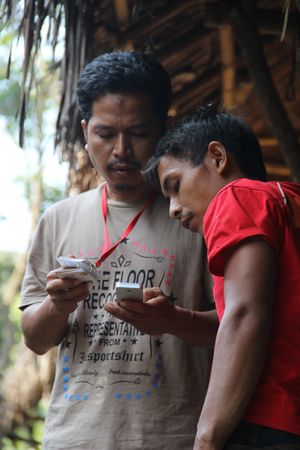Pelsa/en
<languages?>
Daftar isi
Module 2 : Pelsa : Village Reporters
Overview
Pelsa (Pelapor Desa) provide an important link between the farming communities and the local veterinary services. Pelsa are locally based, motivated individuals chosen by their community to work with the farmers, report problems, act as a liaison person and assist the animal health field staff in treatments and follow-up. They are not expected to treat without advice from dinas staff or make any kind of diagnosis.
Although often well able to identify animal disease and other problems, these village-based reporters should be supported by training in signs recognition, clarification of terminology used to describe problems and in the reporting of problems using short, simply coded SMS. Pelsa are at the front line of the animal disease monitoring service and a strong network of Pelsa are an asset to any district animal health service. Experience tells us that the stronger the network of local, village-based reporters we have, the more able we are to detect serious disease problems early. Detecting problems early is one of the most important parts of a strong animal health surveillance system.
Target Audience
Courses can be conducted
- to identify new Pelsa
- to train people who have already been acting in similar roles and who are already experienced in acting as a informan kunci or kader, for example. Note that these 'other roles' sometimes have additional duties (some kader are able to treat problems or send in differential diagnoses). The Pelsa role is intended simply as a 'reporter' of problems not a quasi para-veterinary role.
Pelsa should be village based, motivated and easily accessible to local farmers.
Pre-requisites
- Some experience with animals, livestock and farmers.
- Based in village.
- Chosen by the community as a recommended link and resource point to the district animal health staff.
- Willingness to engage in the role and be easily accessible to local farmers.
- Own mobile telephone and knowledge of SMS (desirable)
Schedule
- Half-day course: iSIKHNAS Pelsa Reporting Module, or
- One day course: iSIKHNAS Pelsa Reporting Module, AND Signs Recognition Module.
Training Materials
iSIKHNAS Pelsa Reporting
- Facilitator Manual
- Powerpoints/Demonstration tools
- Scenarios
- Other activities
Signs Recognition Training
- Facilitator Manual
- Powerpoint
- Images and video material

